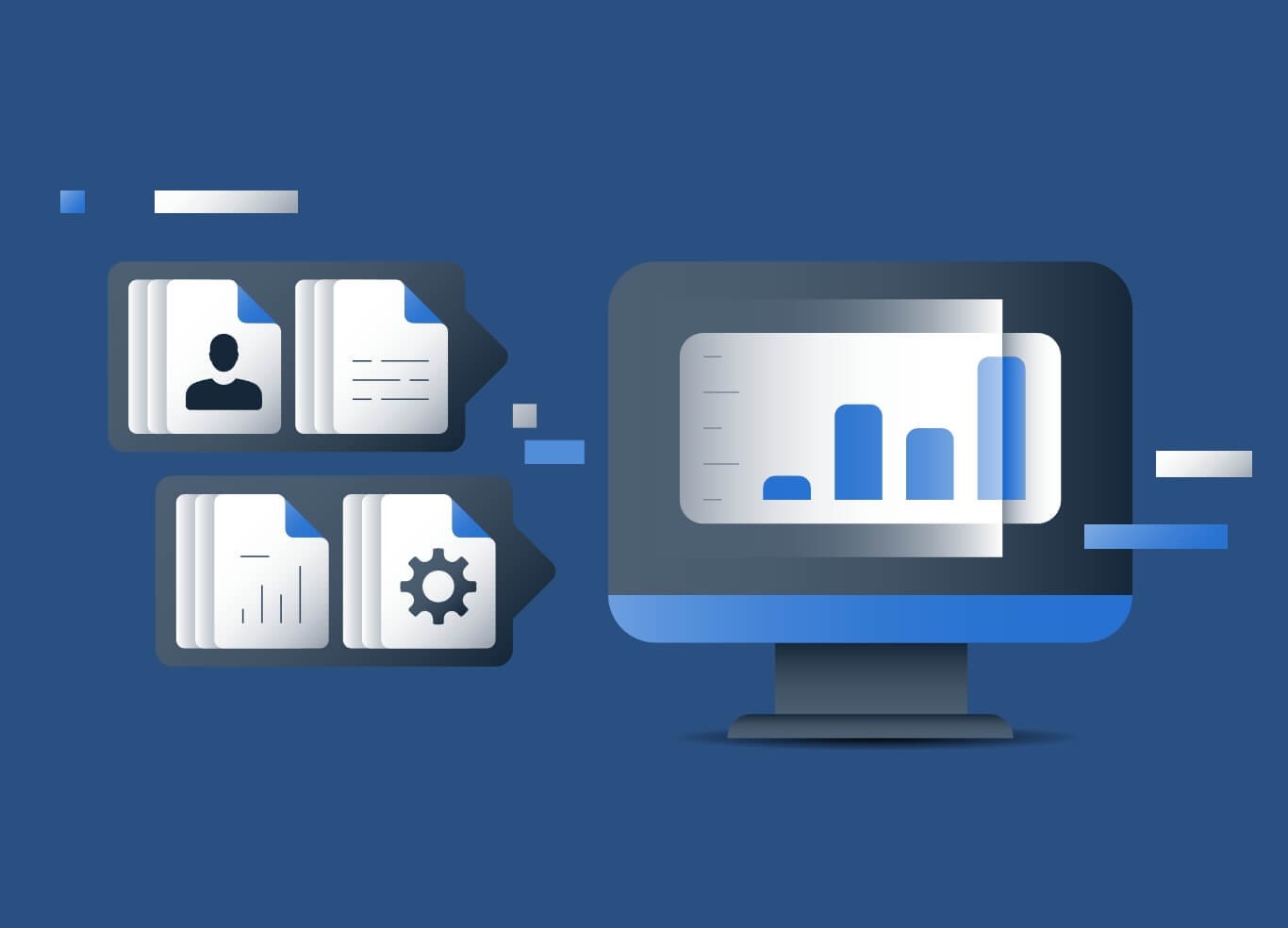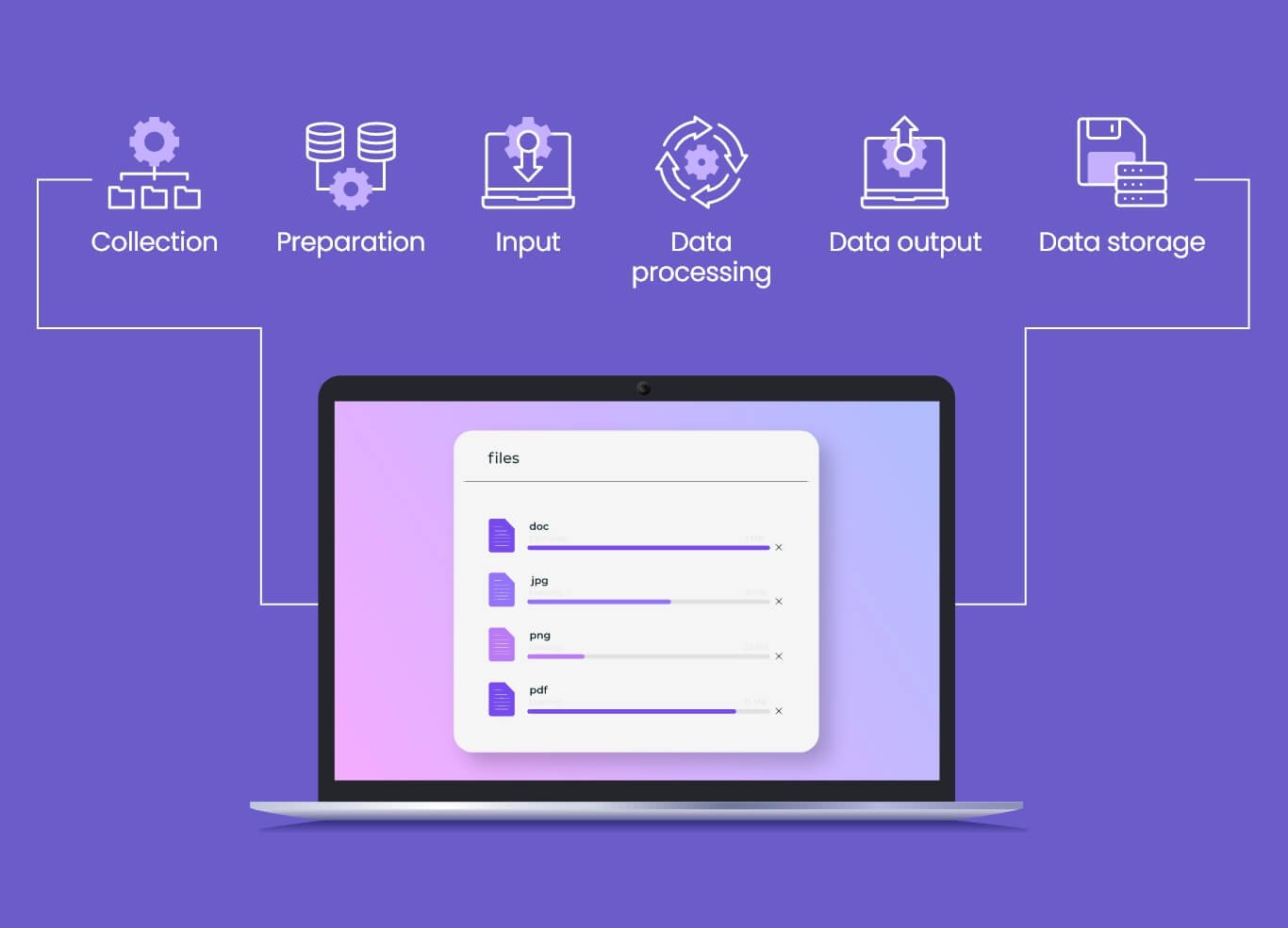Have you ever wondered how data is utilized if it is unfiltered, has irrelevant information, missing values, redundancies, and more? Well, it is significantly impossible to use raw data as it has the potential scope for errors and can lead to disastrous hurdles. Hence, before using the accumulated data, it is cleaned and transformed for further analysis.
“Data really powers everything that we do.” — Jeff Weiner
As the above quote states, data is essential, and everything is controlled by and with data. Data is the new currency in the digital world. With time , technology advances that help businesses to grow, expand, and succeed in the competitive market. As the competition continuously rises, having data has become a necessity as it is a crucial resource for small and large firms. Regardless of sector, size, and type of business, data helps in numerous ways to stay ahead in the market and gain competitive insights. With the proper use of data, patterns, trends, rich insights, and more information is extracted to make informed decisions. However, it is important to have hands-on data to maximize data utilization.
Staying ahead in the market is vital today. However, it is only possible when data is cleaned, ready to use, and optimized to bring effective results. Although a vast amount of data is generated and collected from various sources daily, managing, processing, and cleaning the information is one of the daunting tasks for businesses.
Elevate Your Business Strategies with Data Processing Services
Thankfully, in the technological world where data is king, data processing services can efficiently help gain the desirable results as valuable services aid in collection, cleaning, preparation, processing, and output. Moreover, businesses in the modern age leverage the power of data that is usually collected from multiple platforms in different formats. Utilizing the raw data cannot result in significant outcomes and may result in business loss, which is why data processing is a comprehensive solution.
As discussed, the digital age is growing, and the use of data is becoming more prominent; data processing processes involve critical steps that enable the organization to use the information for further analysis and other uses. Typically, data processing workflow sounds simple; however, it involves crucial steps, one of which is data preparation. This significant step plays a vital role in the entire working process, involving important data cleaning. Raw data collected from multiple platforms is usually in inappropriate format, unstructured, erroneous, unnecessary information, etc. All this leads to improper results and acts as a hurdle for the experts. Therefore, data cleansing services come into the picture and help streamline the data processing workflow. Before understanding the steps and process, let’s indulge in the details of data processing services and how they benefit every business sector.
Brief Introduction to Data Processing Services
Every large and small organization looks for novel ways to compete in the market and maximize profit. Certainly, this calls for strategizing campaigns, strong marketing, streamlined workflow, and more. Above all, data provides the most efficient and accurate results for firms to understand fierce competition. Data acts as a crucial resource for business in the modern age of technology, empowering firms with rich insights into the market, customer behavior, and more to make informed and confident decisions.
In fact, any organization today collects and generates massive data volumes from various sources, which is evident in managing and organizing to get fruitful results. This is why data processing services play a pivotal role for businesses from multiple economic sectors. It is defined as a process of collecting, transforming, analyzing, and interpreting data to produce meaningful information from raw data. This information is crucial for making informed decisions, enhancing operational workflow, and understanding the market and customer behavior.
The intricate process entails several steps to achieve the outcome. Data processing aims to offer valuable insights to businesses so they can make informed decisions and enhance the operational workflow. As a matter of fact, a crucial process allows firms to manage massive data volume accurately and utilize it for extracting insights. The actionable insights help make data-driven decisions that can enhance performance, increase revenue, and improve customer satisfaction. Nonetheless, it also brings various benefits to the firm, the following are;
- Improves data accessibility
- Reduces the risk of errors
- Facilitates data collection
- Improves data management
These are some of the advantages; however, to avail of these, it is crucial to follow the significant steps. The process can be easy or difficult, depending upon the complexities of the data; however, it is essential to follow all the steps. Moreover, it is quickly becoming a critical aspect of any business operation in the modern age. Let’s understand the process of data processing services that an organization can follow.
Exploring Data Processing Steps for Businesses
The importance, approach, benefits and definition of automated data processing have become quite popular due to technological advancement. However, it’s important to note that automated data processing is a subset of data processing services. Automated data processing entails using cutting-edge technologies to gain accurate results without compromising crucial time. On the other hand, data processing services also use technologies but demand skill, expertise, and human intervention.
The goal of the process is to transform the raw data into meaningful and understandable information for decision-making and enhancing business operations. This entails following certain steps to achieve the desired results. Typically, there are six critical steps to follow; let’s understand them in detail.
6 Steps for Data Processing Services
Data Collection
Data Input
Data Output and Interpretation
Data Preparation
Data Processing
Data Storage
- Data Collection: The first stage of the data processing service begins with collecting data from various sources, such as surveys, social media, databases, online, and more. Gathering information from every source possible is vital to transforming the information into meaningful insights and achieving desirable results.
- Data Preparation: As the collected data from multiple sources, it is typically in raw format, which means poor quality of data, errors, irrelevant data, and more. Processing this cannot bring accurate results, which can also manipulate decision-making. The data preparation stage typically involves data cleansing services, which refers to cleaning collected data and verifying any errors, incorrect values, duplicates, and more. Moreover, this is a crucial stage as data cleaning is evident for fruitful results.
- Data Input: Once the data is collected and cleaned, it can be transformed into an application—or machine-readable format. The input of data is fed into a processing system, such as software, algorithms, and more. There are many methods of data input, some of them popular once: manual data entry, automatic data capture, or data import from external sources.
- Data Processing: The primary stage is data processing after input into the processing system. The input data is transformed, analyzed, and organized in the processing stage to extract the desirable information. Typically, there are a variety of data processing service methods; however, it depends on the type of outcome or insight the business wants and on the complexity of the data.
- Data Output and Interpretation: The output of data and interpretation is a stage where the processed information is presented in easily digestible formation. It may also generate reports, graphs, and visualizations that help understand complex data and enhance decision-making. As a matter of fact, output and interpretation also deal with extracting valuable insights and achieving the desired data processing goals.
- Data Storage: After gaining a fruitful outcome from data output and interpretation, the processed information must be securely stored in the database for future access, use, and analysis. Secured storage ensures data protection from breaches and quick accessibility while maintaining data privacy.
These are the six stages of data processing services. Following these steps will help to bring desirable results without any hassle. Since data is collected from different sources, companies have their own data set that can bring valuable insights, such as invoices, documents, survey forms, campaign insights, and more.
Moreover, documents are part of any business sector. Their data is processed with document processing services that enhance data quality. As discussed in the critical steps, data preparation—the second stage—holds the supreme significance. The process cannot yield reliable results without accuracy in the second stage. Let’s dive deep into the importance of data preparation.
Importance of Data Preparation in Data Processing Workflow
In the modern age of business culture, it is necessary to extract insights from data. Since the data is usually generated or collected in raw format, it becomes irrelevant to the study as it brings incorrect results. Therefore, data processing is one of the comprehensive solutions businesses can adopt. The definition and significant steps have been briefly discussed, highlighting the importance of data processing services for different industries. However, in the steps mentioned above, the second stage, data preparation, is a pillar of the workflow to get desirable results. Data preparation is a stage where the collected information is prepared for further processing. This generally involves data cleansing services or data scrubbing. It refers to cleaning data from errors, irrelevant information, old information, duplicate content, missing values, redundancies, and more. This type of data is also known as rogue data.
Companies from different sectors have massive volumes of data in structured and unstructured formats, which means they may also have insignificant information that can lead to misdirected results. Since good data hygiene is crucial for every business, data cleansing helps to remove rogue data, delete irrelevant data points, and fill in the missing value of the information.
Moreover, this proves the significance of the data preparation stage in the process, as inaccurate or inconsistent data can lead to faulty and misleading insights. Once the data is cleaned and prepared, further steps can be taken to achieve the desired results in the second stage of data processing. The following are some key benefits of data cleansing services in the preparation stage.
- Improved data accuracy
- Informed decision making
- Enhanced data quality
- Better data integration
- Increased efficiency
These benefits ensure that the further steps in data processing bring accurate and desirable results. Failing to clean the data can lead to insignificant results and some potential consequences, such as
- Poor data quality
- Regulatory compliance risk
- Wasted resources
- Inaccurate insights and results
The consequences mentioned above can cause significant loss to a firm and loss of a competitive edge in the market. This ensures that the second stage of processing services goes right, accurately, and efficiently. This way, businesses can leverage the true power of data and gain leads while improving operational workflow. However, as the importance and the process of data processing is compelling, it is evident to get the task done by outsourcing data processing services provider. Outsourcing services is one of the comprehensive solutions in the digital age, as businesses from various sectors are usually overburdened with daily operational tasks. Hence, hiring data processing experts can benefit the company in many ways. For a detailed understanding, let’s explore how outsourcing service providers can be a reliable option.
Outsourcing Data Processing Services by Experts
As we look into the organization’s working culture today, we see that it has a different reality than it was in earlier days. Today, advancements in technology are benefitting almost every sector in multiple ways. One of the most significant advantages of technology is the generation of data and how it keeps advancing as the future comes. Earlier, imaging AI in the software was nearly impossible. However, today, AI is one of the firms’ most beneficial and boosted technologies. As discussed, it brings ease and streamlines processes for organizations; the generation of data has become massive and necessary to manage, organize, and store in an efficient manner.
While a business team of resources is typically inclined to vital responsibilities and roles every day, managing the data accurately and extracting insights becomes cumbersome. Moreover, it disturbs and diverts the internal team’s focus from the crucial tasks, resulting in inaccurate outcomes. Therefore, in such scenarios, businesses tend to outsource such services.
In the era of digitalization, the outsourcing concept isn’t new; however, it has recently gained popularity for its long list of benefits and easiness it provides to the firm. It usually means hiring a third party to perform the task in a given timeline. Similarly, hiring data processing companies in the outsourcing market is quite common, given the mass production of data. Outsourcing data processing services by reliable firms brings beneficial outcomes to the business and ensures that the data is safe. The following are the key benefits of the same;
Key Benefits of Data Processing Services
Timely Completion
Cost-effective Pricing Models
Latest Technological Use
Tailored Solutions
Teams of Experts
Data Security
Accurate and Efficient Results
The list of advantages of outsourcing data processing services can be extended. Uniquesdata is a renowned and trustworthy data management company that offers specialized skills and cost-effective pricing plans for data processing services.
In a Nutshell
Data processing services are the backbone of modern business operations in today’s digital landscape. As it helps professionals make data-driven decisions, enhance performance, and give a competitive edge in the market. Moreover, implementing them by following the given steps ensures accurate and efficient end results. As their importance and demand keep growing, outsourcing data processing by experts is one beneficial solution.



